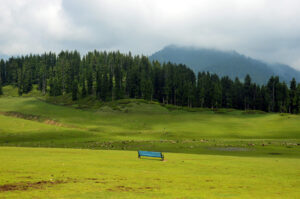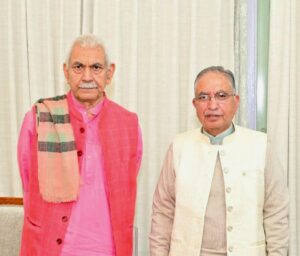Kashmir’s tribal blanket artisans grapple with challenge to preserve heritage

Artisans of the tribal blankets and stoles, custodians of a centuries-old tradition, are grappling with the challenge of preserving their heritage due to a lack of recognition from the Department of Handicrafts and Handloom.
Originally hailing from the picturesque Jawdara village in Gurez, nestled within North Kashmir’s Bandipora district, a resilient community of the Dard-Shina tribe has been meticulously crafting traditional tribal blankets, stalls, woollen caps and socks for generations.
Following their displacement due to a devastating avalanche in 2005, they found solace and a new home in Chatergul Bala village, situated in Ganderbal district where they continue to practice their craft with unwavering determination.
Despite the advent of power looms and the subsequent migration of many artisans to modern techniques, these families remain unwavering in their dedication to safeguarding and perpetuating their cherished heritage craft.
Ghulam Mohammad, a 70-year-old artisan who has woven blankets since childhood, expresses disappointment at the lack of recognition.
“This art has been passed down for generations. Yet, we are not acknowledged or registered with the Handicraft Department. While others receive support, we are overlooked,” he said.
Describing the meticulous process, Mohammad explains the manual labour involved. “We shear the wool from our own sheep, wash and comb it, then spin it into fine threads before weaving it on a loom. It is a family effort, with women spinning and men weaving,” he said.
However, despite their dedication, the earnings are meagre, and the conditions are challenging. Mohammad appeals to the Government for assistance. “We work day and night, often without electricity. Solar power would greatly aid us. We need recognition and support from the authorities,” he said.
Mohammad Afzal Khan, another veteran artisan, echoes Mohammad’s sentiments on the financial struggles. “Despite decades of dedication, our earnings remain minimal. Registration could provide us with much-needed benefits,” he said.
The younger generation, like Zahoor Ahmad Lone, reluctantly embraces the craft due to limited job opportunities. “Unemployment led me to this ancestral profession, which is not just a livelihood but also our cultural heritage.”
Lone urges the Government to extend support. “We deserve recognition and financial aid like other handicraft sectors,” he said.
Lone emphasises the need for geo-tagging and better marketing to fetch fair prices and access international markets. “Just like other products, our crafts should be geo-tagged for better recognition and marketing,” he said, adding that they seek not just acknowledgment but also tangible support to ensure the survival and prosperity of their cherished tradition.





